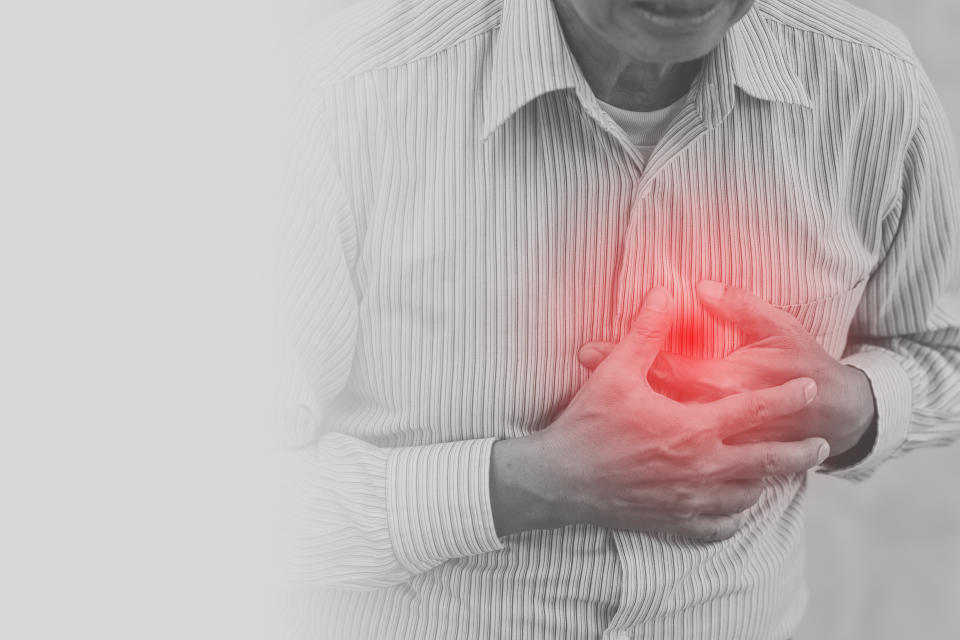Sex after heart attack boosts survival prospects, study suggests

Heart attack patients may have better long-term survival prospects if they start having sex again within a few months of their health scare, research suggests.
Scientists from Tel Aviv University looked at 495 sexually active people aged 65 or under who were hospitalised with their first heart attack between 1992 and 1993.
Results revealed the patients who maintained or even increased their sexual activity in the six months following the life-threatening event were 35% less likely to die over the next 22 years than those who abstained or cut back from intimacy.
Read more: Sexual health service sees spike in demand as lockdown eases
An active sex life is often a marker of wellbeing, with the scientists wondering if intercourse soon after a heart attack helped the participants see themselves as a “functioning, young and energetic person”, which could aid adherence to a healthy lifestyle.
Sex is also a workout in itself, which boosts cardiovascular health, added the team.

More than 100,000 heart attack hospital admissions occur each year in the UK – one every five minutes.
In the US, someone has a heart attack every 40 seconds.
Like all vigorous exercise, sex temporarily raises a person’s heart rate and blood pressure.
Read more: Only two in five UK adults sexually active during lockdown
Sudden bursts of intense activity can trigger a heart attack, which may put some survivors off intercourse. The risk is lower, however, among those who exercise regularly.
“For this and other reasons, some patients (including younger ones) hesitate to resume sexual activity for long periods after a heart attack,” said study author Professor Yariv Gerber.
Watch: ‘Sometimes during sex I cry for no reason. Is this normal?’
To better understand the benefits of sex after a heart attack, the Tel Aviv scientists analysed data from the Israel Study of First Acute Myocardial Infarction.
The participants’ average age was 53 and nine in 10 (90%) were men. A 2016 Harvard study found heart attacks are around twice as common in men as women.
While in hospital, the patients were asked about their sexual activity in the year before their heart attack. The same participants were then interviewed three to six months after being discharged.
Just under half (47%) claimed to have abstained or cut back from intimacy following their health scare, while 53% returned to their normal level of intercourse or even increased how often they were sexually active.
Read more: The foods that boost – and zap – libido
Over a follow-up period of around 22 years, 211 (43%) of the patients died.
Results – published in the European Journal of Preventive Cardiology – revealed that maintaining or increasing the frequency of sexual activity within the first six months of a heart attack reduced the risk of death over the follow-up by 35%, compared with abstaining or cutting back.
The survival benefit was most marked for non-cardiovascular deaths, like cancer.
The results remained the same after the scientists accounted for other factors that affect mortality, such as obesity, depression and the severity of the heart attack.
“Sexuality and sexual activity are markers of wellbeing,” said Professor Gerber.
“Resumption of sexual activity soon after a heart attack may be a part of one’s self-perception as a healthy, functioning, young and energetic person.
“This may lead to a healthier lifestyle generally.
“Patients who perceive their health as poor might be less likely to start having sex again.
“They may also be less likely to adhere to cancer screening tests and other prevention practices during follow-up.”
Sex can also have more direct benefits.
“Improved physical fitness, stronger spouse relations and a mental ability to ‘bounce back’ from the initial shock of the event within a few months are among the possible explanations for the survival benefit observed among the maintained/increased group,” added Professor Gerber.
The scientists noted the study involved few female and young participants, which may prevent the results being applied to the general population.
Nevertheless, Professor Gerber added: “These findings should serve to reduce patients’ concerns about returning to their usual level of sexual activity soon after a heart attack.”
Watch: People end relationships because of bad sex


